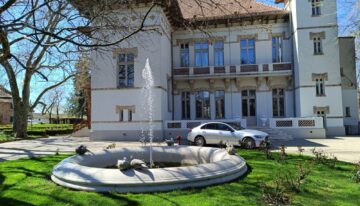Car accidents can occur suddenly and unexpectedly, leaving a trail of damage in their wake. Whether it’s a minor fender bender or a more severe collision, vehicles involved in accidents often sustain various types of damage. Understanding the common types of car damage in accidents can help drivers better prepare for such situations and take necessary precautions to mitigate risks.
Cosmetic Damage
This is perhaps the most common type of damage seen in car accidents. It includes scratches, dents, and paint damage to the vehicle’s exterior. Cosmetic damage may seem minor, but it can significantly affect a car’s appearance and resale value. Even a small scratch or dent can require costly repairs, especially if it affects the vehicle’s paint job.
Structural Damage
Structural damage refers to any harm done to the underlying framework of the vehicle. This type of damage can occur in high-impact collisions and may compromise the structural integrity of the car. Signs of structural damage include bent or twisted metal, misaligned panels, and frame deformations. Repairing structural damage often requires extensive work and can be expensive.
Mechanical Damage
Car accidents can also cause mechanical damage to various components of the vehicle. This may include damage to the engine, transmission, suspension, brakes, or steering system. Even a relatively minor collision can result in mechanical problems that affect the car’s performance and safety. Repairing mechanical damage typically requires the expertise of a qualified mechanic and can be costly depending on the extent of the damage.
Glass Damage
The windows, windshield, and mirrors of a car are vulnerable to damage in accidents. Broken or cracked glass not only impairs visibility but also compromises the structural integrity of the vehicle. In many cases, damaged glass must be replaced entirely to ensure the safety of the vehicle’s occupants. Fortunately, most auto insurance policies cover the cost of glass repair and replacement.
Airbag Deployment
In severe accidents, airbags may deploy to protect the occupants from injury. While airbags can save lives, their deployment can also cause damage to the interior of the vehicle. This includes torn upholstery, broken dashboard components, and damage to the steering wheel or instrument panel. After an accident, it’s essential to have the airbags inspected and replaced if necessary to ensure they function properly in future collisions.
Electrical Damage
Modern vehicles are equipped with sophisticated electrical systems that control various functions, including lighting, entertainment, and safety features. Car accidents can cause electrical damage that affects these systems, leading to issues such as malfunctioning lights, non-responsive sensors, or electrical fires. Repairing electrical damage often requires specialized diagnostic equipment and the expertise of trained technicians.
Fluid Leaks
Impact from a collision can cause damage to the vehicle’s fluid systems, resulting in leaks of oil, coolant, brake fluid, or transmission fluid. Fluid leaks not only affect the performance of the vehicle but can also pose environmental hazards and increase the risk of fire. It’s essential to address fluid leaks promptly to prevent further damage and ensure the vehicle remains safe to drive.
Frame Damage
In severe accidents, the vehicle’s frame or chassis may be bent or twisted, affecting its overall structural integrity. Frame damage can be challenging to detect and repair, requiring specialized equipment and expertise. Even minor frame damage can compromise the safety of the vehicle and increase the risk of future accidents. It’s crucial to have the frame inspected by a qualified mechanic after any collision.
Car accidents can result in a wide range of damage to vehicles, ranging from cosmetic scratches to severe structural and mechanical issues. Understanding the common types of car damage in accidents can help drivers better assess the aftermath of a collision and take appropriate steps to ensure their safety and the safety of others on the road. Additionally, having comprehensive auto insurance coverage can provide financial protection against the cost of repairs resulting from accidents.













